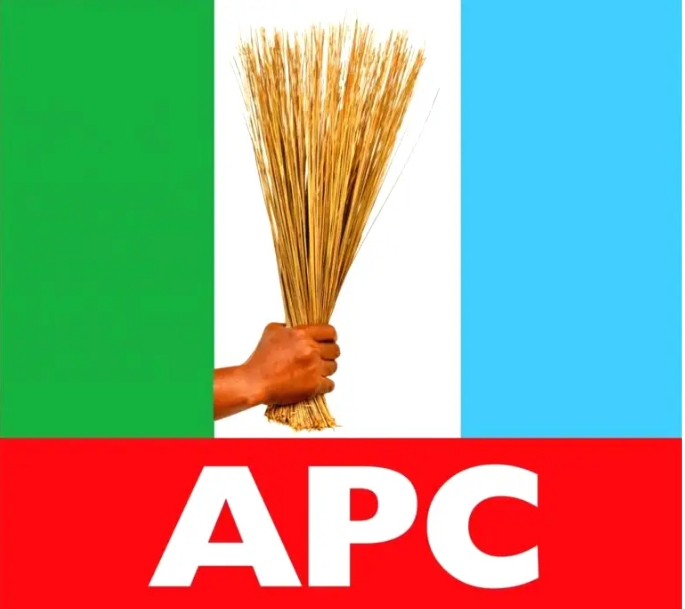
…Fate of ‘super’ delegates hangs
…New arrangements favour emergence of Northern candidate
…North to have 1,257 delegates, South 1,068 delegates
Except President Muhammadu Buhari assents to the Electoral Act 2022 Amendment Bill before him, only 2,340 ad-hoc delegates will be participating at the forthcoming convention of the ruling All Progressives Congress, APC, to elect the party’s presidential candidate for next year’s election.
This is because the current Electoral Act 2022 (as amended) does not provide a role for statutory delegates during the convention.
The ad-hoc delegates will be drawn three apiece from the nation’s 774 local government areas and six area councils of the nation’s capital, Abuja.
APC’s presidential convention, a three-day event, has been fixed for May 30 to June 1.
Statutory or “super” delegates include elected councillors, elected local government chairmen and their vice, political party chairmen in all the 774 LGAs and the Federal Capital Territory FCT, state and federal lawmakers, governors and their deputies, president and vice president, political parties’ national working committee members, state party chairmen and secretaries.
The provision in the principal act reads: “A political party that adopts the system of indirect primaries for the choice of its candidate shall clearly outline in its constitution and rules the procedure for the democratic election of delegates to vote at the convention, congress or meeting.
Last week, federal lawmakers amended Section 84 of the principal act by deleting subsection (8) and inserting a new sub-section (8) as follows: “A political party that adopts the system of indirect primaries for the choice of its candidates shall clearly outline in its constitution and rules the procedure for the democratic election of delegates to vote at the convention, congress or meeting, in addition to statutory delegates already prescribed in the Constitution of the party.”
While the amendment bill has been transmitted to the president, he has a 30-day constitutionally-guaranteed window within which to assent to the Act or withhold assent.
Although the National Assembly leadership seems to have communicated the urgency of assenting the bill to the president, the lawmakers’ rejection of President Buhari’s plea in February to delete the section barring executive appointees from participating in the primaries could force the president to now taking his pound of flesh by withholding assent.
Except the president assents to the amendment bill before the commencement of the APC primaries, the fate of its super delegates hangs in the balance.
Also, the party said five delegates will be elected from each of the nation’s 8,809 wards to elect governorship candidates in their various states.
Delegates’ election
The APC on Tuesday inaugurated chairpersons and secretaries of screening committees for state Houses of Assembly Aspirants and special congress committees to elect its local government, state and national delegates.
At the inauguration, the National Chairman of the party, Senator Abdullahi Adamu who was represented by the Deputy National Chairman, North, Senator Abubakar Kyari said the committees will go to the various states and screen the House of Assembly aspirants, hear appeals after the screening and also conduct congresses to elect a local government, state and national delegates.
“Initially, we were supposed to have two processes but we have decided to combine both exercises so that you all can conduct the exercises one after the other or simultaneously if the situation permits”, he stated.
National Organizing Secretary of the party, Suleiman Muhammad Argungu said the APC leadership would “provide each chairman and secretary of each committee the guidelines that specify roles of the committee which include minimum requirements; APC requirements; educational requirements; payment of form fees which qualifies each aspirant to contest.
“All these and more are in the guidelines that will be given to each group and also, we would provide each group with aspirant assessment verification forms that you will ensure you follow diligently to do justice to each of the aspirants who have purchased forms and submitted”, he added.
New arrangements favour the emergence of Northern candidate
The new delegate arrangement will favour the emergence of a Northern candidate unless the APC zones the ticket to the South and takes special measures to produce a Southern candidate.
A breakdown of the 2,340 delegates for the presidential primaries shows that the North has 1,257 delegates while the South has 1,068 delegates.
Also, the North-West zone with seven states and 121 local councils has 558 delegates. It is followed by the South-West, which has six states, 137 local councils and 411 delegates. Both zones account for 979 of the 2,340 delegates.
Going further, the South-South with six states and 123 local councils will have 369 delegates. The fourth zone in terms of delegate strength is North-Central (363 delegates). It has 121 local councils drawn from six states and FCT, Abuja. It is followed by the North-East (336 delegates) with six states and 112 local councils.
The least zone is South-East with five states, 96 local councils and 288 delegates.
Among the 23 presidential aspirants still left in the race for the APC ticket 19 are from the South and four are from the North.
Among the Southern aspirants, eight are from the South-East which has the least number of delegates; seven are from the South-West, and the South-South has four.
In the North, North-West has two while North-East and North-Central have one each.


